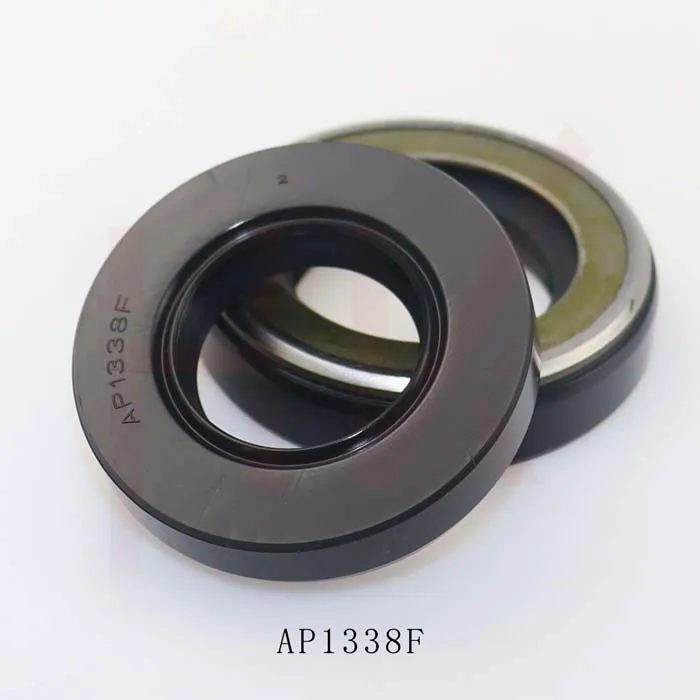Aug . 14, 2024 19:57 Back to list
Exploring the Benefits and Applications of High Temperature Oil Seals in Industrial Equipment and Machinery
Understanding High Temperature Oil Seals Essential Components for Industrial Applications
In various industrial settings, the efficiency and longevity of machinery depend on the quality of the components used to create a secure and functioning system. One crucial element in ensuring this efficiency is the high temperature oil seal. High temperature oil seals play a significant role in preventing leaks, protecting machinery from contaminants, and ensuring the smooth operation of equipment under extreme conditions.
What is a High Temperature Oil Seal?
A high temperature oil seal is a specialized sealing device designed to fit into a rotating shaft assembly, preventing the escape of lubricants while keeping contaminants at bay. They are typically made from durable materials engineered to withstand elevated temperatures and the corrosive effects of oils and other fluids used in machinery. Common materials for high temperature oil seals include fluorocarbon elastomers, polyurethanes, and other advanced polymers, which are specifically designed to maintain their integrity and performance at high temperatures.
Applications
High temperature oil seals are vital in various sectors, including automotive, aerospace, and manufacturing. In the automotive industry, for example, they are used in engines, transmissions, and differentials, where they help maintain oil pressure and prevent harmful leaks. In aerospace applications, these seals protect critical components from contamination and ensure the smooth operation of high-performance machinery under extreme temperature fluctuations.
In manufacturing, equipment such as pumps, compressors, and motors regularly encounter high operating temperatures, making the use of oil seals essential. They not only prevent the loss of lubricating oils but also help in maintaining system efficiency by reducing friction and wear on moving parts.
Importance of High Temperature Resistance
high temp oil seal

The ability of an oil seal to withstand high temperatures is crucial for several reasons. First, elevated temperatures can cause standard seals to degrade rapidly, leading to premature failure and potential damage to machinery. High temperature oil seals are formulated to resist thermal degradation and maintain their mechanical properties, ensuring they can perform reliably over extended periods.
Second, these seals also help maintain the viscosity of lubricating oils, which can change with temperature fluctuations. Proper lubrication is vital for reducing friction, minimizing wear and tear, and prolonging the life of mechanical components. By preventing oil leaks and contamination, high temperature oil seals help ensure that machinery operates smoothly and efficiently.
Challenges and Considerations
While high temperature oil seals are designed for demanding conditions, several factors must be considered when selecting the right seal for specific applications. Factors such as operating temperature range, compatibility with different types of oils and fluids, and the type of machinery all play a role in determining the appropriate seal. Additionally, the design and manufacturing standards should be carefully evaluated to ensure that the oil seals can withstand not only high temperatures but also pressure and rotational speeds.
Proper installation and maintenance are also critical in ensuring the longevity of high temperature oil seals. Any misalignment or improper fitting can lead to premature seal failure, resulting in costly downtime and repairs. Therefore, it is essential to work with experienced technicians and to follow manufacturer guidelines during installation.
Conclusion
In conclusion, high temperature oil seals are indispensable components in various high-performance industrial applications, providing leak prevention and protection from contaminants. Their ability to withstand extreme temperatures ensures the efficient operation of machinery, helping to reduce costs and increase productivity. As industries continue to evolve and demand higher performance, the role of high temperature oil seals will only become more significant, underscoring the importance of choosing the right seal for each application to achieve optimal results.
-
Wiper Oil Seal: Our Commitment to Clean Hydraulics
NewsAug.13,2025
-
Hydraulic Oil Seal for Self Discharging Cars
NewsAug.13,2025
-
Hub Oil Seal for Agricultural Tractor Hubs
NewsAug.13,2025
-
Skeleton Oil Seal with NBR Material
NewsAug.13,2025
-
Rotary Lip Seal for High Pressure Applications
NewsAug.13,2025
-
Cylinder Seal Kits Our Legacy of Hydraulic Trust
NewsAug.13,2025
-
Unlocking the Potential of Hydraulic Systems with Essential Sealing Solutions
NewsAug.06,2025
Products categories
















